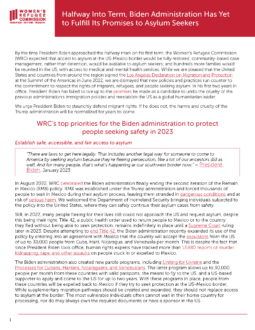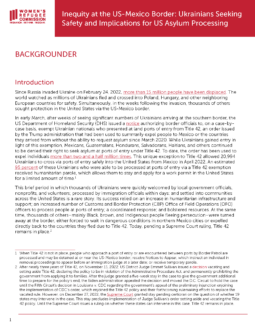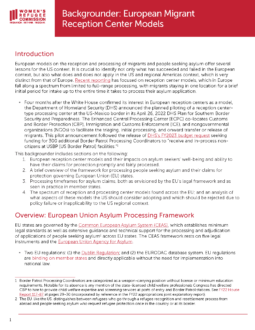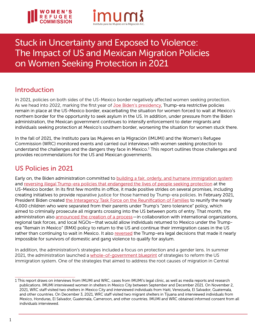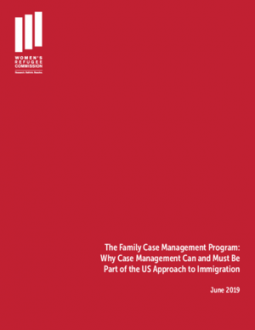
The Family Case Management Program: Why Case Management Can and Must Be Part of the US Approach to Immigration
PublishedFrom January 2016 through June 2017, the US government implemented a new program to respond to families seeking asylum at the US border. As an alternative to family detention or release with electronic monitoring, some families were enrolled into the Family Case Management program (FCMP). Although planned as a five-year program in five cities across the United States, Immigration and Customs Enforcement (ICE) terminated the program in June 2017, only 1.5 years into its implementation, for what WRC’s report confirms were political reasons. At the same time, the Trump administration increased a devastating practice of family separation that it would subsequently seek to end with an increase in harmful family detention.
FCMP was intended to demonstrate to government officials, Congress, and the public how a program focused on case management support to immigrants in proceedings could best function. The program achieved a 99% compliance rate with ICE and immigration court requirements at a fraction of the cost of detention and supported hundreds of families in finding stability in their communities, supporting them with their immigration requirements, and beginning to prepare them for the outcomes of their case. However, WRC believes FCMP’s implementation also included missteps, notably through its partnership with GEO Care.
With critical improvements and expansion, a program like the Family Case Management Program could serve many thousands more, save millions of dollars, and increase efficiency in an immigration system that desperately needs it.



